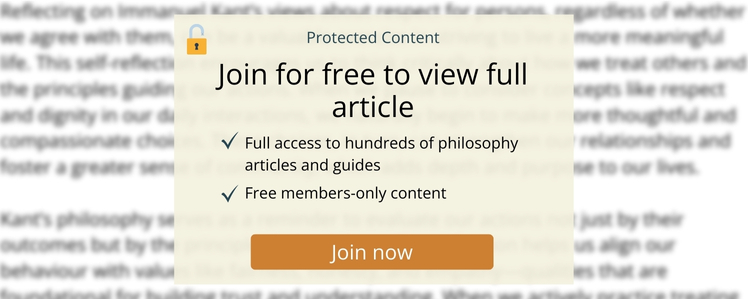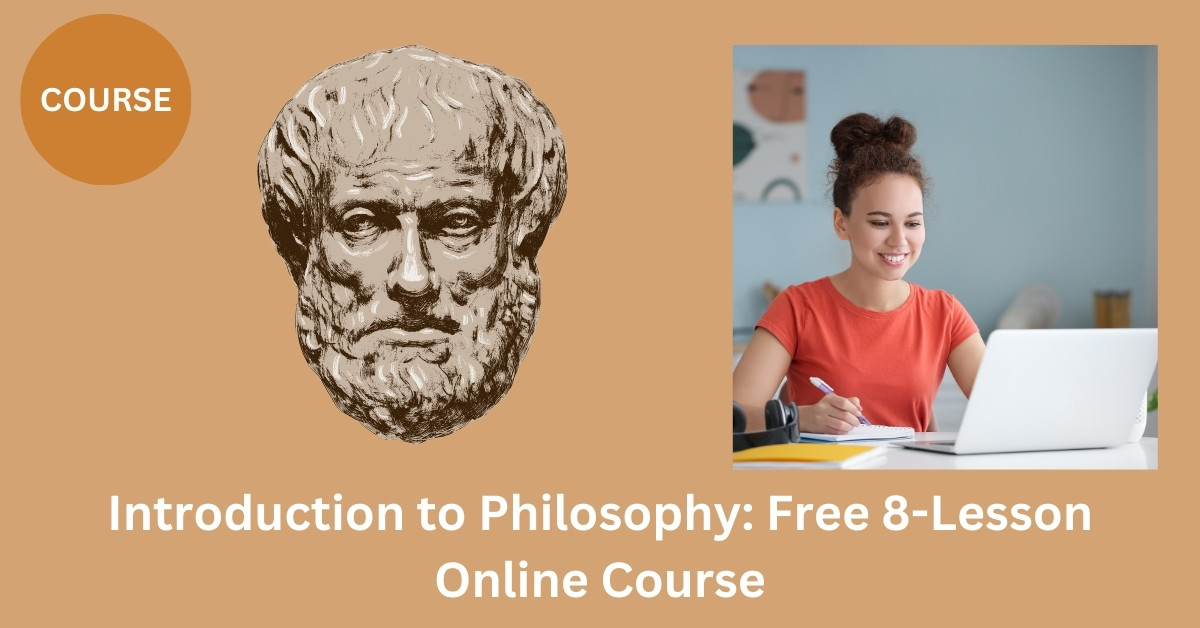Philosophy often serves as a guide for those seeking to lead a more meaningful life, yet many individuals struggle to grasp the importance of dialectics within Hegel’s philosophical framework. Understanding this concept is essential, as it plays a crucial role in how we can apply philosophical principles to enrich our lives. This article provides an overview of Hegel’s philosophy, explores the concept of dialectics, and examines their significance in the quest for a deeper and more fulfilling existence.
Key features of Hegel’s philosophy

Georg Wilhelm Friedrich Hegel was a German philosopher whose ideas significantly influenced many areas of thought, including politics, history, and culture. One of the key features of Hegel’s philosophy is his concept of the dialectic, which emphasizes the process of change and development through the resolution of contradictions. According to Hegel, ideas evolve through a dynamic interaction of opposites, often framed as a thesis encountering its antithesis, leading to a synthesis—a new, higher-level understanding.
Hegel also believed in the concept of “Absolute Spirit,” which represents the culmination of human thought and self-awareness. He argued that history is a rational process where humanity gradually grows in freedom and self-realization, with each historical stage building on the last. This development, for Hegel, reflects the unfolding of the Absolute Spirit.
Another core idea of his philosophy is that reality is shaped by ideas, blending the material and spiritual. Hegel viewed the individual not in isolation, but as part of a larger social and historical context. To him, true freedom is realized through participating in society and reconciling individual desires with the collective good.
Despite being considered complex, Hegel’s work remains influential for its exploration of human progress, interconnectedness, and the interplay of conflict and resolution in shaping history and thought.
What is dialectics?
Hegel’s view of dialectics is rooted in the idea of opposing forces or concepts interacting to produce change and development. He believed that reality and thought are constantly evolving through a process of contradictions. For Hegel, this process begins with a starting point, which he called the “thesis.” The thesis inevitably invites an opposite or contradictory idea, known as the “antithesis.” The conflict between these two opposing ideas leads to a resolution, referred to as the “synthesis.” The synthesis reconciles elements of both the thesis and antithesis, creating a new, more advanced stage of understanding or reality.
This process of thesis, antithesis, and synthesis is not just a one-time event for Hegel but a continuous cycle. Each synthesis becomes a new thesis, generating further contradictions and progress. Hegel saw dialectics as the driving mechanism behind the development of ideas, history, and even consciousness itself. He emphasized that through this continual process, contradictions are not failures but are necessary for progress and growth. For Hegel, truth is not a fixed or static entity; it is something that emerges through this ongoing dynamic process of dialectical development.
This example helps demonstrate this philosophical perspective. Imagine a society deeply committed to individual freedom. Over time, the excessive focus on individualism leads to social fragmentation, as people prioritize personal gain over the collective good. This fragmentation creates tension and prompts a desire for greater unity. To address this, the society adopts a new system that emphasizes community values and collective welfare. However, this shift might suppress individual freedoms, leading to dissatisfaction and a pushback towards personal autonomy. This back-and-forth process of tension and resolution drives the evolution of ideas and systems, ultimately reaching a more balanced synthesis that incorporates elements of both individual freedom and collective harmony. Hegel’s concept often highlights this dynamic process, where opposing forces clash and resolve to create progress. Through this example, we can see the continuous interplay of ideas shaping and reshaping society over time.
Challenges to Hegel’s view about dialectics
Philosophers object to or reject Hegel’s view about dialectics for various reasons, often rooted in concerns about its methodology, assumptions, and implications. One key criticism is that Hegel’s approach can be perceived as overly abstract or speculative. Some thinkers argue that his use of dialectics relies on concepts that are far removed from concrete reality, making his ideas difficult to apply in practical or empirical contexts. Critics worry that this abstract nature undermines the reliability or usefulness of his method in addressing real-world problems or advancing knowledge.
Another major objection is that Hegel’s dialectics can seem deterministic to some philosophers. Determinism suggests that events or ideas follow a fixed, inevitable path without room for alternative possibilities. Hegel’s system implies that history and ideas develop according to a predetermined process, with each stage necessarily leading to the next. Critics argue that this view leaves little space for human freedom, creativity, or unpredictability. They believe that reducing complex historical or intellectual developments to a rigid framework oversimplifies the diversity of human experience and history.
Additionally, some philosophers challenge the level of coherence in Hegel’s work. They assert that his dialectical system is often obscure and prone to contradictions. While Hegel embraces contradictions as part of his method, many thinkers find this approach problematic. Critics argue that contradictions should not be accepted as logical progressions and that doing so erodes the clarity and validity of philosophical arguments.
Finally, there are objections based on political or ideological grounds. Hegel’s dialectics have been interpreted as supporting specific views about the state, history, or society that some philosophers reject. For instance, critics from existentialist or individualist perspectives argue that Hegel prioritizes collective, abstract entities like the “state” or “spirit” over the individual’s lived experience and autonomy. This tension leads some thinkers to view his ideas as incompatible with a focus on personal freedom and individuality.
These objections illustrate why some philosophers resist Hegel’s dialectics, emphasizing the need for philosophical methods that are clear, practical, and accommodating of individuality and contingency.
Why dialectics is important to Hegel’s philosophy
These are some of the main reasons why grasping the concept of dialectics is essential to comprehending Hegel’s philosophy.
- Encourages Critical Thinking
The idea of dialectics plays a key role in fostering critical thinking by motivating individuals to explore opposing viewpoints. Within this approach, understanding comes from identifying and analyzing contradictions, rather than avoiding them. By acknowledging conflicts and tensions in ideas, dialectics helps us to critically assess different perspectives, leading to a fuller and more nuanced understanding of concepts. This encourages an openness to questioning assumptions and reflecting on how ideas might evolve over time. The process thus emphasizes intellectual growth and adaptability by teaching us to integrate diverse perspectives into our thought processes.
- Shows the Dynamic Nature of Ideas
Dialectics stresses that ideas are not static but are constantly evolving through interaction and conflict. This is vital for understanding how concepts develop in response to new contexts, challenges, or contradictions. Rather than seeing knowledge as fixed, dialectical reasoning highlights the ongoing process of change and development. This dynamic perspective is crucial for examining how ideas build upon one another, resolve tensions, and give rise to entirely new ways of thinking. The focus on motion and progress in ideas promotes a deeper understanding of intellectual and historical advancements.
- Explains Interconnectedness
An important aspect of dialectics is its emphasis on the interconnectedness of all things. It highlights that no concept or idea exists in isolation but is shaped by its relationships and oppositions to other ideas. Understanding this helps to reveal the broader context in which thoughts, systems, and events exist. By focusing on how ideas influence and challenge one another, dialectics provides a framework for seeing the unity and complexity within diversity. This interconnected approach is essential for developing a comprehensive understanding of complex systems and their underlying principles.
Contrasting Hegel’s philosophy with Karl Marx
Hegel’s view of dialectics focuses on the process of ideas evolving through a logical progression of contradictions and resolutions. He saw history and human development as a continual dialogue where conflicting ideas (thesis and antithesis) clash, eventually leading to a synthesis—a higher, more refined understanding. This philosophical method sought to uncover the absolute truth through the reconciliation of these contradictions.
Karl Marx, however, adopted and adapted Hegel’s dialectical method for his own purposes, creating what is often referred to as dialectical materialism. While Hegel’s dialectics were rooted in the realm of ideas and consciousness, Marx shifted the focus to material conditions and economic structures. He argued that societal progress arises not from the clash of abstract ideas but from class struggles—the conflicts between the working class and those who control the means of production. Marx’s framework was grounded firmly in the material world, emphasizing practical, real-world conditions over abstract philosophy.
This fundamental difference in how they applied dialectics is key to understanding the distinction between Hegel and Marx. Hegel’s dialectics were theoretical, aiming to explore the evolution of thought and spirit, while Marx’s dialectics sought to analyze and transform material social and economic conditions. Thus, while Marx was influenced by Hegel, he took Hegel’s method in a new, more pragmatic direction, which has become the foundation of Marxist theory.
Dialectics, Hegel’s philosophy and the meaning of life
Reflecting on Hegel’s views about dialectics and his philosophy, whether or not you agree with them, can carry practical value when striving to live a more meaningful life. At its core, engaging with philosophical ideas encourages deeper introspection, helping individuals to consider different perspectives and challenge their assumptions about the world. Even without fully agreeing with Hegel, reflecting on his work fosters a mindset that is open to growth and transformation. This openness is essential when seeking greater purpose or clarity in life.
One of the key benefits of engaging with ideas like Hegel’s is the conscious effort it requires to think critically. Often, we encounter obstacles in life that seem insurmountable or situations that feel static and unchanging. Reflecting on philosophies that emphasize change and progression, like Hegel’s, can help us to see challenges not as barriers but as opportunities for development. This shift in perspective—embracing the possibility of transformation and resolution—can lead to more constructive ways of addressing personal conflicts or uncertainties.
Furthermore, reflecting on Hegel’s ideas in particular highlights the complexity and interconnectedness of life. It encourages us to explore how opposites—such as struggles and triumphs—are often part of the same larger process. This perspective can be grounding, as it mirrors the ebb and flow of human experiences. By acknowledging life’s dualities and contradictions, we may become more comfortable with uncertainty and more patient in our pursuit of meaningful goals.
Finally, reflecting on philosophy as we shape our lives promotes the idea that meaning is not static—it is something we create and recreate over time. Philosophical exploration encourages us to continually assess our values, beliefs, and the purpose we attach to our actions. Instead of passively accepting a fixed view of life, engaging with challenging ideas encourages us to actively participate in identifying what makes our lives fulfilling.
Whether we agree with Hegel or not, stepping into the realm of philosophical reflection inspires growth, self-awareness, and a stronger sense of intentionality. This is why examining such ideas is a valuable practice for anyone seeking to live a more meaningful and thoughtful life.
Further reading
Beiser, F. C. (2005). Hegel. Routledge.
Findlay, J. N. (1976). Hegel: A Re-examination. Routledge & Kegan Paul.
Hegel, G. W. F. (1977). The Phenomenology of Spirit (A. V. Miller, Trans.). Oxford University Press. (Original work published 1807)
Hegel, G. W. F. (2010). Science of Logic (G. di Giovanni, Trans.). Cambridge University Press. (Original work published 1812)
Houlgate, S. (1991). Freedom, Truth, and History in Hegel’s Philosophy. Clarendon Press.
Hyppolite, J. (1974). Genesis and Structure of Hegel’s Phenomenology of Spirit (S. Cherniak & J. Heckman, Trans.). Northwestern University Press. (Original work published 1946)
Pinkard, T. (2000). Hegel: A Biography. Cambridge University Press.
Pippin, R. B. (1989). Hegel’s Idealism: The Satisfactions of Self-Consciousness. Cambridge University Press.
Taylor, C. (1975). Hegel. Cambridge University Press.


